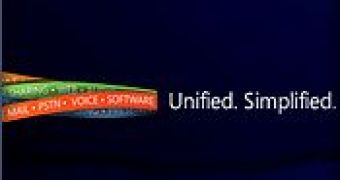When it comes down to the world of unified communications, Microsoft's strategy is to develop and offer software-based solutions. Nowhere is this more evident than in the October releases of its business communication products: Office Communications Server 2007 and Office Communicator 2007. In order to complement the availability of the next generation of unified communications products, Microsoft also unveiled development tools via the Unified Communications Developer Portal, on the Microsoft Developer Network. With the new portal, Microsoft is essentially enabling developers to create content that is designed to integrate seamlessly on top of its unified communications platform. In this context, the portal features a variety of resources from software developer kits to application programming interfaces.
"We've launched the Unified Communications Developer Portal on MSDN. This is the ideal point of entry for developers to get information, to post questions and to receive help from our team. They can access the latest tools, including the SDKs and APIs, and find the white papers and blogs published about our technology. We also would love to make this portal the place where we start the dialog with the community and get feedback to help us make the platform better for developers everywhere," revealed Kirt Debique, general manager for the Office Communications Platform & Solutions Group.
Debique explains that Microsoft is essentially delivering developers with the tools necessary to evolve unified communication beyond the default offerings. There are three areas of focus for the growth of unified communications via third party solutions: contextual collaboration, business process communications and anywhere information access. In the end, it will all come down to the intimate integration of the communication processes into the everyday workflow, while at the same time delivering automation and anywhere information access.
"It is the only unified communications platform designed specifically for the Microsoft developer community. We have abstracted the complexity of communications into APIs that can be easily integrated with other software solutions. Take the UC Managed API. It is .NET. You program it in managed code, you use Visual Studio and it does what it is designed to do. You don't need to worry about the underlying hardware. Going forward, we're focused on delivering even more powerful APIs based on .Net and Web Services supported by easy-to-use, familiar and integrated tools. You'll be hearing more from us at the 2008 Office Developers Conference in February," Debique added.

 14 DAY TRIAL //
14 DAY TRIAL //